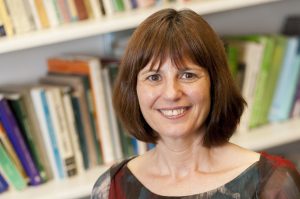
TUSCALOOSA, Ala. — Do our memories constitute a large part of who we are as individuals? In the first lecture of The University of Alabama’s 2016–2017 Philosophy Today series, Dr. Marya Schechtman, a philosophy professor and the associate dean of the College of Liberal Arts and Sciences at the University of Illinois at Chicago, will discuss the role of memory using philosophy and neuroscience research.
The lecture, titled “My Whole Life Long: The Ethical Significance of a Unified Self,” will be held Tuesday, Sept. 27 at 7:30 p.m. in room 205 of Smith Hall on the UA campus.
The lecture is free and open to the public.
“It is a very common view that our memories make us who we are,” Schechtman said. “This is one of the reasons that diseases like dementia are so devastating; they seem to rob us of our very selves. This common position is very convincing, but also somewhat vague. What kind of memories give us our identities?”
In her lecture, Schechtman will focus on an unusual neuropsychology case of a woman without episodic memory—meaning she cannot recollect autobiographical events in her past. While many philosophers believe these memories are vital to identity, others say episodic memory isn’t necessary to having an ethically full, complex life as a human being.
Schechtman will discuss both points of view.
“We can do a lot more than we might have thought without this kind of memory and the understanding of ourselves it provides, but there are also some profound costs associated with not having it,” she said.
Schechtman uses psychopharmaceutical research as well as neuroimaging to understand the way humans understand themselves and their own minds. She is interested in the connections between memory and the experience of self and time.
“I think this gets at something very deep about the human condition, and it is a place where philosophers, neuroscientists and psychologists can interact in a very helpful way.”
Lectures in the Philosophy Today series are geared toward a general audience and are of interest to those in any profession or academic discipline.
Philosophy Today is sponsored by the UA College of Arts and Sciences’ department of philosophy, a grant from Louis W. Perry and other alumni, and friends of the department.
The College of Arts and Sciences is the University’s largest division and the largest liberal arts college in the state. Students from the College have won numerous national awards including Rhodes, Goldwater and Truman Scholarships.
Contact
Courtney Corbridge, courtney.a.corbridge@ua.edu, 205/348-8539
Source
Dr. Marya Schechtman, marya@uic.edu, 312/996-4687
